Find out more about skilled trades career paths in our library of trade descriptions.

Railway Car Technician (268R)
Railway Car Technicians ensure that trains, streetcars, and subway trains are working correctly. They are responsible for inspecting passenger and freight cars for damage and making necessary repairs. This means working with any of the parts involved in the inner/outer works of a rail car, including compressors, air valves, piping, air cylinders, passenger seats, windows, and washrooms.
Relay & Instrumentation Technician (288R)
Relay & Instrumentation Technicians repair, overhaul, and calibrate vital signal control relays (VSCR) within the transit environment.
Saw Filer/Fitter (611B)
Saw Filer/Fitters repair, set, and sharpen blades for band, chain, hand, circular, and other types of saws.
Surface Blaster (278B)
Surface Blasters fill blast holes with explosives and detonate them to dislodge coal, ore, and rock to demolish structures.
Surface Mount Assembler (630B)
Surface Mount Assemblers solder, bond and assembler the various components that make electronics work.
Tool & Cutter Grinder (602C)
Tool & Cutter Grinders set up and operate grinder machines to shape or sharpen precision cutting tools and cutters. Machines include surface, cylindrical, pedestal, and tool or cutter grinders.
Tool & Die Maker (430A)
Tool & Die Makers are skilled craftspeople that make, repair, and modify custom-made, prototype, or special tools, dies, jigs, fixtures, and gauges to very specific and precise dimensions. The work involves the operation of lathes, grinders, and milling and boring machines.
Tool & Gauge Inspector (239B)
Tool & Gauge Inspectors inspect, test, and adjust new and reworked tools, dies, jigs, fixtures and gauges. To become a Tool and Gauge Inspector, you are likely already working as a Tool & Die Maker.
Tool/Tooling Maker (630T)
Tool/Tooling Makers make repairs to specialized equipment, cutting tools, gauges, jigs, fixtures, prototypes, and mechanical devices used for testing parts. They also produce components to build machines and tooling used to create various industrial and consumer products.